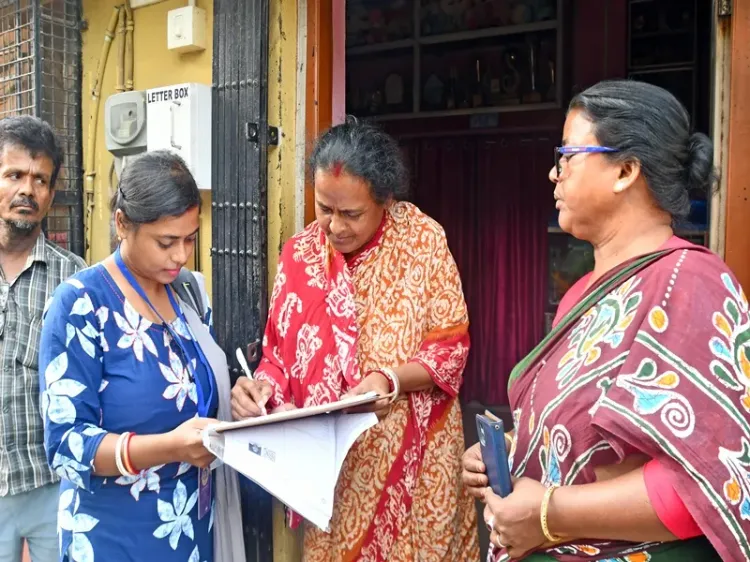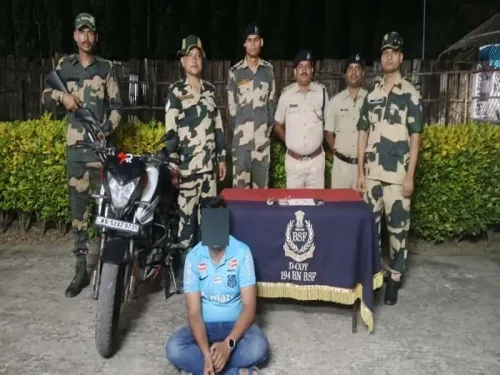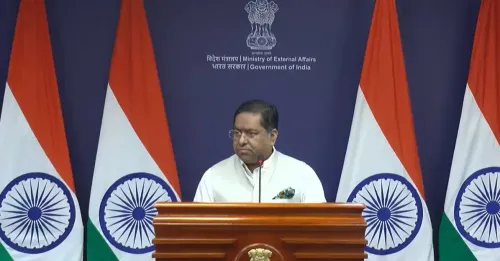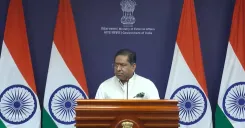Is Bengal's Rajbangshi Community Embracing SIR Amid Land Concerns?

Synopsis
Key Takeaways
- The Rajbangshi community supports the SIR process to protect their land rights.
- Their political alignment is influenced by concerns over the CAA.
- The GCPA's demand for statehood reflects ongoing regional aspirations.
- The outcomes of upcoming elections could reshape political dynamics in West Bengal.
- Both major parties are vying for this influential community's support.
New Delhi, Nov 7 (NationPress) In West Bengal, while political narratives regarding the ongoing Special Intensive Revision (SIR) of the electoral roll have caused widespread panic, resulting in reported suicides, the state’s largest group of Scheduled Caste (SC) has embraced the initiative, asserting that it will help to identify “outsiders” allegedly occupying their lands.
The Rajbangshi community, which comprises over 18 percent of the population, is the largest SC group in West Bengal, estimated to be around half a crore, residing across the districts of Cooch Behar, Jalpaiguri, Darjeeling, Malda, and Murshidabad.
“We endorse the SIR initiative; it will assist in identifying fraudulent voters, deceased individuals, and migrants, among others,” stated Bangshibadan Barman, a leader from one faction of the Greater Cooch Behar Peoples’ Association (GCPA).
In the upcoming 2024 Lok Sabha elections, Barman has shown support for the Trinamool Congress candidate in the Cooch Behar Lok Sabha seat, urging his followers to back Chief Minister Mamata Banerjee and the party, citing her contributions to the Rajbangshi community.
However, these political ties did not sway him to align with the Trinamool Congress' strong opposition to the SIR. The community's apprehensions regarding “outsiders” encroaching on their land remain their primary concern.
The GCPA has been advocating for a separate state for the Rajbangshi, which would encompass seven districts in North Bengal and three in Assam. Barman's faction is recognized as the most prominent among the various groups calling for statehood in the region, enjoying substantial local support.
Both the ruling Trinamool Congress and the Bharatiya Janata Party (BJP) have been courting the Rajbangshi community, particularly since the BJP had a sweeping victory in the 2019 Lok Sabha elections in the region.
BJP's Nisith Pramanik won the Cooch Behar parliamentary seat by a margin exceeding 54,000 votes and subsequently became the Union Minister of State for Home and Minister of State for Youth Affairs and Sports from 2021 to 2024.
Nevertheless, concerns regarding the implementation of the Citizenship Amendment Act (CAA) among the Rajbangshi community have caused allegiance to shift, as they fear the law could confer legal status upon squatters in areas they consider their own.
Riding on these uncertainties, Trinamool Congress candidate Jagadish Chandra Barma Basunia triumphed over Pramanik in the 2024 Lok Sabha elections by a margin exceeding 39,000 votes.
In this election, of the seven Assembly segments within the Cooch Behar parliamentary constituency, the TMC led in four, a significant increase compared to the two seats they managed to win in the 2021 Assembly elections.
In other parliamentary constituencies across North Bengal where the Rajbangshi community holds sway, such as Alipurduars, Jalpaiguri, and Darjeeling, the BJP made gains, albeit with reduced margins.
The only constituency where the BJP increased its margin was in Raiganj, surpassing its closest Trinamool Congress opponent by over 7,600 votes compared to 2019.
Regarding the SIR rollout in West Bengal, despite their differences, BJP Rajya Sabha MP Nagendra Ray, who leads another faction of the GCPA, echoed Barman’s sentiments.
“Certainly, we welcome the SIR; it will help identify fraudulent voters and intruders,” said Ray, who claims descent from the former rulers of Cooch Behar, and is affectionately known in the area as Ananta 'Maharaj'.
“I would contend that something is preferable to nothing (in terms of statehood),” he added. While both leaders advocate for the implementation of the National Register of Citizens (NRC) to identify “outsiders” or “illegal squatters” on their land, they oppose the CAA.









